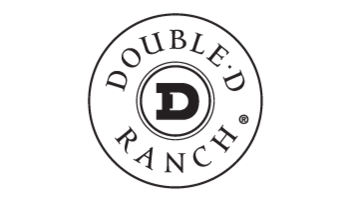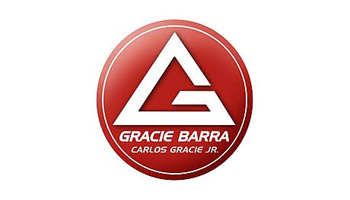Starting your own business is one of the most rewarding and terrifying experiences! When you finally decide that it’s time to leave your 9 to 5 and start a new chapter of you life, it can be an exciting time. You have a lot of hopes for your company and you can’t wait to start the journey. There’s also that underlying anxiety of being responsible for your success and paychecks! Not to mention the “what-ifs” are quick to creep in too.
So what do you do about this? Well, keep in mind that even if you’ve done your research, invested time, and are an absolute god or goddess in your field:
The bulk of your business’s success (and failures) are going to come from trial and error.
In other words, there’s not a fool proof plan or 12 step formula. What works for some won’t work for you and vice versa. It’s ultimately up to you to figure out what drives customers to your door and what doesn’t grab their attention. And take advice from others in the field with a grain of salt. Just because social media marketing drives up their sales doesn’t mean it’ll work for you. Don’t get your hopes dashed if something doesn’t work out right away- just try something new! I promise that something will eventually stick. It took me a long time to get my business off the ground and now it practically runs itself. It’s worth the headaches to kick that 9 to 5 lifestyle, trust me!
However, there are some simple mistakes that you can avoid that will make starting your own business much easier. I’ve learned these from personal experience and also from friends who have also left their desk jobs to become their own boss. They’ve been instrumental in my success and I’m positive that they’ll help you too. So ready to learn some insider secrets about running your own business?
Cool! Just scroll down a bit…
#1 Not All Clients are Good Clients

Alright, I’m going to dive in with one of the hardest business lessons:
Not every client you get is worth keeping.
There. I said it.
In the beginning, you might be tempted to snag any and every single client that comes your way. While this isn’t necessarily a bad thing, it can easily turn against you if you’re not careful. When you’re first getting started, you should absolutely take as many customers as you can. However, you also need to be selective. Clients that are difficult, rude, and those that are low-paying can cost you more than you get out of them in the long run. Remember that time is money and if it takes way more time to make them happy than it does your other clients, ditch ‘em. They’re not worth it!
Those that constantly under-bid or want discounts aren’t worth keeping around either. When I first started my freelance writing business, I didn’t think it was a big deal to let some of the clients pay me a little less than others. “You charge X amount for 100 words? That’s a bit steep. I normally pay Y.” So I’d accept Y. And you know what? I figured out pretty quick that it wasn’t worth my time to do the work for them. Plus when they’d refer me to others who needed writing work, they expected that same discount. And those discounts don’t pay my rent.
Know your worth then add tax. Kidding about the last part but know your worth and stick to it. If you believe that your time is worth X, then don’t settle for Y or Z (unless it’s more)!
#2 The Golden 80/20 Rule

The Pareto Principle, or 80/20 rule as it’s more commonly known is something that you’ll need to familiarize yourself with in all of your aspects. Admittedly, it’s more of a phenomenon than an actual principle, but it’s one that you should get to know intimately nonetheless.
So what is the 80/20 rule? Well, it stipulates that 80% of the effects are caused by 20% of the causes. Simply put:
20% of your clients will bring in 80% of your business.
80% of your sales will come from 20% of your sales team.
And so on and so forth.
So understanding and identifying the 20% will help you out greatly. Knowing the 20% of clients that are bringing in the bulk of your sales will help you divvy up your time better. You want to make sure that you’re getting these clients enough of your attention to keep them satisfied while spending less time with those that aren’t bringing in the bacon.
Knowing your strengths and weaknesses in regards to your sales team is also helpful. Reward those that are driving sales and replace the weak links that are costing your business rather than benefitting it.
I highly suggest checking out this websiteto learn more. The principle is pretty confusing and difficult to understand in my opinion. I can’t explain it that well to you, but the website I linked does a really good job of simplifying it.
#3 Work On Not In Your Business

This is really important and it’s also one of the more difficult aspects of owning your own business.
When you’re first starting out, you might be tempted to do as much or all of the work as possible. You might also have difficulty trusting others to perform delegated tasks to your standards. Or maybe you’re just trying to cut costs. I get it, it’s expensive starting out! Especially when you have very few clients and you’re dependent on all of the money that comes in.
Unfortunately, it’s not healthy for you or your business. It’s easy to lose track of the big picture if you’re piling too much on your plate. Remember that saying “you can’t see the forest for the trees?” Yeah, that applies here.
Keep in mind that you’re in charge of your business. So you should outsource and delegate whenever possible. Even in the beginning when every dollar counts, you still want to start compiling a team. You can do it slowly, expanding your team as your business grows but don’t neglect the hiring process in favor of chasing cash.
If you’re having trust issues with your team, then consider this:
You hired and screened them. You read their resumes. You saw their sample work (if applicable). You spoke to references. They’re good picks.
So why wouldn’t you want to trust them? Especially if they can make your life easier. Sure, you may regret some of your hires, but you’ll also be eternally grateful for others so don’t be afraid to give them tasks.
So what should you focus on? Building your business. You’ll want to devote the bulk of your time to improving your company. This means research and looking at different tactics that will grow your business.
#4 Be Flexible

In my opinion, this is one of the most understated aspects of a successful business.
But what do I mean when I say “be flexible?” Well, I’m glad you asked.
While you should definitely avoid bad clients and those that aren’t boosting your business, you shouldn’t back down from different, unusual, or difficult work that’s relevant. Don’t be afraid to move beyond your comfort zone!
You never know where these particular roads will take you. Moving outside of your niche and comfort zone can help you find new clients, expand your business, build your reputation, and more. In short, being flexible could easily take both you and your business in directions and niches you never thought possible.
As you probably know by now, I started my road to job freedom as a freelance writer. I focused mostly on websites where you can pick your own tasks before being scooped up by personal clients and sites. At first, it was all articles all day everyday. And they pretty much followed the same contexts like “10 places you need to visit.” Which was great! That was exactly what I signed up for. However, the tasks began to change as my web of clients grew.
Some wanted more SEO friendly writing. What?! Others wanted articles on topics I’d never even heard of! It was intimidating to say the least. Had I turned down these tasks, not only would my bank account be missing some padding, but my business never would have grown. I have expanded beyond my original content and my writing has also improved. I’ve also learned a lot about other industries, products, and even the world around me by writing different content.
In other words, all positives from being flexible!
#5 Those 9 to 5 Hours are a Thing of the Past

Alright so this is a big one but don’t celebrate right away! Starting your own business will allow you to kick the 9 to 5 schedule, but there’s a catch: you’re pretty much on-call all day every day.
You know the pipe dream that everyone sells that “running your own business lets you control your own timetable”? Yeah, it’s pretty untrue. As a freelancer, I can control my hours for the most part. However, I can’t really control when the emails and requests will come in. If I don’t want to work before 10 am but a client sends me a task at 7 am with a 2 hour time limit, guess who’s not sleeping in if they want that check? As a business owner, you’ll have less control of your time.
Even if you’re outsourcing a lot of your work (commandment #3), you’ll probably still find yourself working late into the night making sure that everything is exactly the way it should be. This happens more frequently in the beginning when you’re first getting your business off the ground, but don’t expect the late nights to end once you’re raking in the success.
Keep in mind though that this doesn’t mean you can’t take breaks, time to yourself or vacations; you absolutely can! However, you are on-call 24/7 and you never know when that email will pop up needing your skills.
#6 Be a Networking Guru

It’s easy to get so wrapped up in your work that you tend to zone out and become a business hermit. However, it’s extremely important that you make time for networking.
If you’re just starting out, networking can be incredibly beneficial for both you and your business. You’d be surprised how many people out there in your field are willing to offer advice and help. You might also stumble across clients who are willing to share what marketing gimmicks worked for them in regards to purchasing products similar to yours. Maybe they liked seeing it advertised on social media or maybe they responded well to email marketing. Either way, networking is a way of getting free advice for your business.
Networking also comes with another perk: it can help you find employees. LinkedIn and others allow you to find as well as browse through people in your field. You’ll also get access to their experience, qualifications, how many years they’ve worked in the field, etc. So instead of hiring blindly, you can find employees that will probably work out better than someone you picked up off of Craigslist or via email.
In addition to connecting you with potential employees, you’re also given access to those who might become future clients. Finding those who are interested in the same stuff you’re selling is a godsend to those who are trying to get their business off the ground. Instead of blindly emailing or investing a ton of time marketing on social media to crowds who might not be receptive, you can sell yourself to those who have a history of purchasing products similar to yours. And chances are even if they aren’t interested themselves they might be willing to pass your info along to some who will be.
The startup community is both helpful and supportive, so don’t hesitate to engage with it.
#7 Don’t Lose Track of Your Customers

Your business strategy should be all about creating value for your customers and keeping them happy. Otherwise, your business is going to crash and burn. Fast. You should also be in touch frequently with how you’re solving your customer’s needs. They’re coming to you because you have something to offer them that they want/need.There are probably a thousand other businesses out there that have similar products but your clients chose you over them. So make sure that you’re fulfilling their needs.
You also need to pay attention to your feedback from customers. Asking for reviews, feedback, and sending out surveys is a great way of tracking customer satisfaction, but keep in mind that not every client will respond. And unfortunately, feedback doesn’t always come by way of email or a 5 star rating and review on your webpage.
Also, it can get overwhelming trying to track down every single source of input regarding your products. You can easily log several hoursinto checking message boards, social media posts, emails, etc. trying to figure out whether or not your product was well received.
So how do you keep track of it? Well, Google is a great place to start. Googling your business name will pop up reviews as well as posts that are relevant to you. You can also search your product names as well. This will give you access at a glance to what customers think about you, your products, and your business.
Don’t put too much weight into one-off negative comments. If there are 10 reviews and all are positive except for 1, don’t let it bring you down. You can’t please everyone and this might be that one person you can’t please.
Look for recurring themes in the reviews. If there are a few negative comments, see what they have in common. Was it the delivery that bothered them? Did they feel like the price was too high? Was it the quality of your goods? Use this to improve both your business and your products.
The same applies to positive comments. If you see recurring themes, take them to heart. Perhaps they like how responsive you are to emails. If this is the case, make sure that’s an aspect of your business that you keep.
Also, don’t let negative comments get you down. Learn from them.
If your company is brand new, there might not be anything to see or find on Google. If you’re still after feedback, consider sending a survey to customers who have purchased form you. Most of the time, they’ll be incredibly happy to fill it out and return it.
#8 No isn’t a Bad Word

When you first start your business adventure, you might find that you’re a “yes only” agency. You say yes to the bulk of clients, you say yes to your employees, you say yes to tasks that don’t benefit your business, etc. This is a problem.
Let me give you an example that happened to a buddy of mine:
Rick’s business was new and he’d only been operating for about 8 months. He did website design as well as marketing. He’d signed some pretty decent clients and had a moderate amount of success. However, he thought his luck had really changed when a large medical company signed a retainer to have his team do their website design and marketing. Dream come true he thought.Nope.
Rick soon discovered that it was a nightmare. As soon as the first check hit his account, the owner started acting rude. He began treating Rick and his staff horribly, insulted them regularly, and made requests outside of the agreements. At first, Rick tried to appease him. He quickly learned though that it wasn’t happening. The owner refused to pay for a number of things and wanted discounts on others “because they weren’t up to his standards.” Even though there was a signed agreement, the guy fought Rick tooth and nail on everything.
That’s when Rick decided he couldn’t be a “yes only” agency anymore. He told the client no, refunded the money, and blocked his email to prevent further contact. Rick admitted that it hurt to lose the business; especially since this guy had money to spend. But ultimately, it was worth it. It gave Rick a sense of empowerment and taught him that no isn’t a bad word.
So if something or someone isn’t working out in regards to your business, don’t be afraid to say no to it.
#9Don’t take Your Stress out on Others

Regardless of what stage your business is in, it’s stressful. There are good days and bad days just like any other job. However when it’s your company, it can be easy to let the stress get to you and turn into a real Negative Nancy. (Sorry.)
When under a vast amount of pressure and stress, it can be easy to snap at clients and even your team. Obviously, this is a definite no. You’re the foundation of your company and you need to remain firm/in control but you also need to be personable. Even if you’re not being outright rude, being short or coming off as “having better things to do than answering questions” can be incredibly off-putting to your team as well as clients. You want to bring positivity and energy to every aspect of your business if you want it to grow. Your first customer should receive the same amount of energy and enthusiasm that your 1000thgets. Your team should also share in this.
Okay, so basic advice right? But what you might not know that can hurt your business is this:
Don’t talk negatively about your clients to your team.
What was appropriate water fountain talk about your 9 to 5 desk job isn’t appropriate for you as the owner of a company. It might be tempting to say, “damn that was a tough client right? Can you believe that he expected us to do X in Y amount of time for Z money? What a nut job!” Even if your teammate laughs, it’s probably out of politeness. They’ll probably also wonder what you say about them behind their back. They might also refer your commentary back to the client out of guilt. And once again, it doesn’t look professional.
Save the venting for your private Word documents or your family/friends who aren’t in the business.
#10 Get the Right Tools

If you were building a house you wouldn’t show up to the jobsite without tools right? So why would you show up to your own company without the right tools?
When you’re starting your own business, it can be tempting to cut corners for the sake of cost. You might also neglect downloading some helpful tools because you’re simply not in the know. However, knowledge is definitely power and when it comes to your business there is a lot of resources out there that will help you grow. And spoiler alert: a lot of them are free!
Also, I’m not just talking about Microsoft Word and Excel Spreadsheet. You should be using these two already. I’m referring to tools that you might not have thought of.
Google is the best starting place when putting together an effective toolkit. Here you’ll find a ton of cloud-based software that means you can access important information on the go. Google Drive, Docs, Calendar, etc. are just a few that you should be taking advantage of. Not only will they help your business run smoother, but you can also share them with both clients and employees to make your job even easier.
WordPress is another great resource; especially if you’re just starting out. You won’t need to shell out thousands for a professionally designed website. Obviously, this is great when you need to divert those funds to other aspects of your business.
Don’t have any experience as a website designer? No problem. WordPress is incredibly easy to use. I’m pretty sure even my tech-impaired grandmother could put together a fabulous website using their software. And she’s never even been on Facebook!
Not sure where to start still? Check out Bizetto.com. They’re a great resource in regards to finding tools that will be instrumental in helping you both start and run your business. You can also compare services such as hosting companies, payroll services, credit card fees, etc. You can also find a blog on their website that will offer valuable information about starting up your own company.
SBA.govis another great resource that you should check out. This website includes discussion boards where you can post questions and get answers from other business owners. It’s also a great place to swap advice.
Regardless of what stage of “starting your agency” you’re in (and even if you’re already deep in, like years) these tips will really help not only your business but your morale as well. Best of luck to you and keep moving forward! -J


















